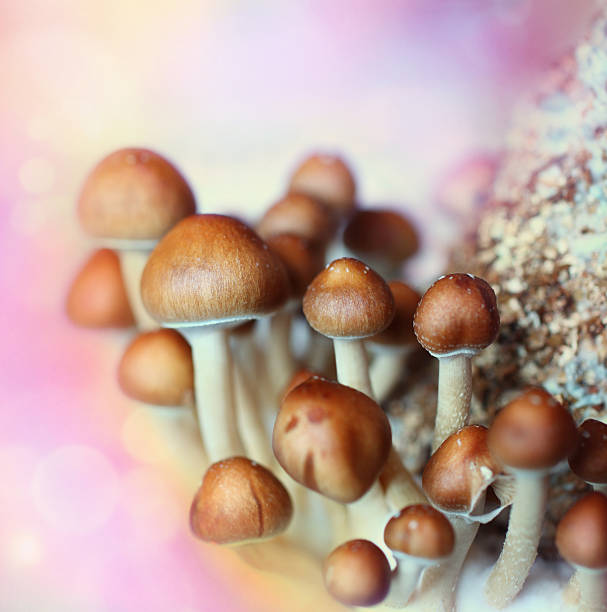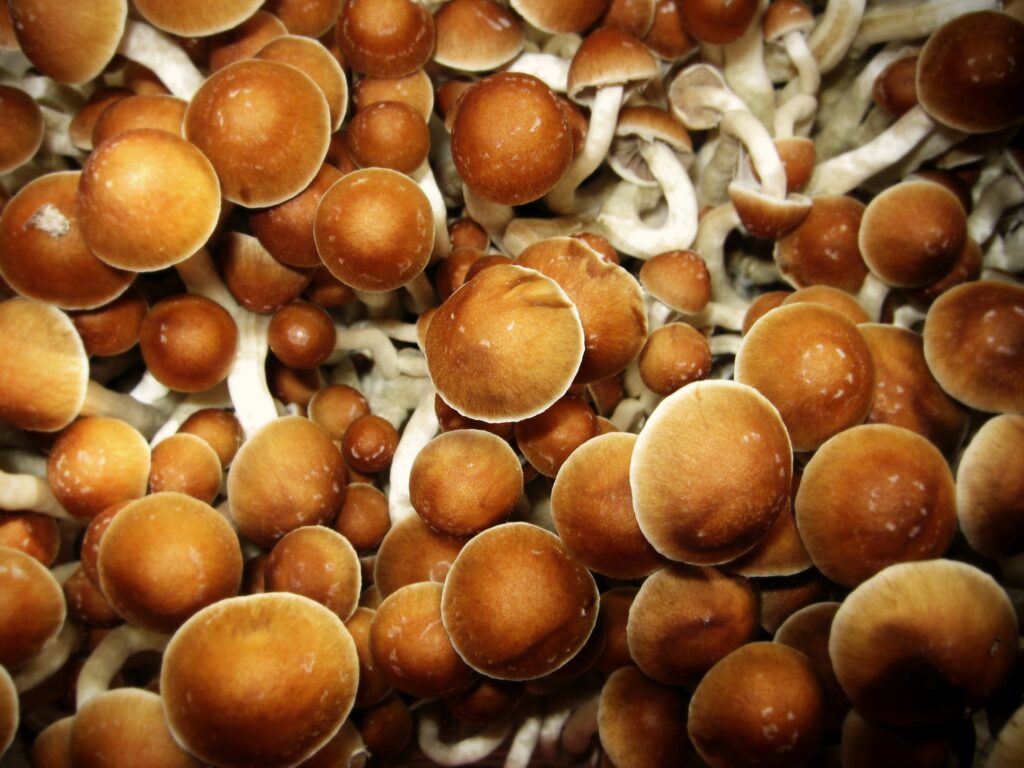Magic mushrooms, or psilocybin mushrooms, have captivated human interest for centuries due to their mystical and mind-altering properties. As the conversation around psychedelics evolves, it becomes crucial to examine the safety and risks associated with the use of magic mushrooms. This article aims to provide a comprehensive overview, considering both the potential therapeutic benefits and the potential hazards users may encounter.

The Psilocybin Experience
Magic mushrooms contain psilocybin, a psychedelic compound that, when ingested, is converted to psilocin in the body. Psilocin interacts with serotonin receptors in the brain, leading to altered perceptions, enhanced emotions, and a heightened sense of connectivity. While many individuals report positive and even transformative experiences with magic mushrooms, it is essential to acknowledge the potential risks associated with their use.
Set and Setting
One of the key factors influencing the safety of a psychedelic experience is the concept of “set and setting.” Set refers to an individual’s mindset, emotional state, and expectations, while setting pertains to the physical and social environment. A positive set and setting contribute to a more controlled and potentially safer experience, reducing the likelihood of adverse reactions.
Psychological Risks

While magic mushrooms are generally considered physically non-toxic and non-addictive, they can induce intense psychological effects. Users may experience hallucinations, altered perceptions of time, and profound introspection. However, for some individuals, these effects can be overwhelming and lead to anxiety, panic attacks, or even psychotic episodes. Those with a personal or family history of mental health issues may be more susceptible to such adverse reactions.
Risk of Accidental Poisoning
Mistaken identification of mushrooms in the wild poses a significant risk. Some poisonous mushrooms look similar to psilocybin-containing ones, and ingesting the wrong species can lead to severe illness or even death. Proper education on mushroom identification is crucial for those interested in foraging for magic mushrooms.
Physiological Risks
While magic mushrooms are generally considered safe when used responsibly, there are some physiological risks to be aware of. Increased heart rate and blood pressure can occur during the psychedelic experience, which may pose a concern for individuals with pre-existing cardiovascular conditions. It is advisable for those with such conditions to consult with a healthcare professional before using magic mushrooms.
Interactions with Medications
Psilocybin can interact with certain medications, potentially diminishing their effectiveness or causing adverse reactions. It is crucial for individuals taking prescription medications to consult with a healthcare provider before using magic mushrooms to ensure compatibility and minimize potential risks.
Addiction and Dependence
Unlike substances such as alcohol or opioids, magic mushrooms are not considered addictive. Users do not develop a physical dependence on psilocybin, and tolerance tends to build rapidly after a single dose. However, habitual use may lead to psychological dependence, and some individuals may misuse magic mushrooms as a coping mechanism.
Long-Term Cognitive Effects
Research on the long-term cognitive effects of magic mushroom use is still in its early stages. Some studies suggest that, when used responsibly, psilocybin may have neuroprotective and cognitive-enhancing effects. However, more research is needed to fully understand the potential risks and benefits, especially with sustained or frequent use.
Therapeutic Potential
While there are risks associated with magic mushroom use, it’s essential to acknowledge the growing body of research suggesting therapeutic benefits. Psilocybin-assisted therapy is being explored as a potential treatment for various mental health conditions, including depression, anxiety, and post-traumatic stress disorder (PTSD). Properly conducted therapeutic sessions with trained professionals may mitigate many of the risks associated with recreational use.
Harm Reduction Strategies
As interest in magic mushrooms grows, harm reduction strategies become paramount. Education on responsible use, accurate mushroom identification, and understanding individual susceptibility to adverse reactions are crucial components of harm reduction. Additionally, advocating for legal frameworks that support informed and safe psychedelic experiences is essential to minimizing risks associated with magic mushroom use.
Dosage and Intention
One of the key factors in minimizing risks associated with magic mushroom use is understanding dosage. The effects of psilocybin are dose-dependent, and users should start with a low dose to gauge their sensitivity and response. Additionally, establishing clear intentions before embarking on a psychedelic journey can contribute to a more meaningful and controlled experience.
Risk Assessment and Personal Responsibility
Individuals considering the use of magic mushrooms should conduct a thorough risk assessment. This includes evaluating their physical and mental health, potential interactions with medications, and the suitability of their environment for a psychedelic experience. Personal responsibility is paramount, and users should be honest with themselves about their motives and readiness for a psychedelic encounter.
Supervised Sessions and Integration
Whenever possible, engaging in magic mushroom experiences under the supervision of trained professionals can enhance safety. These individuals can provide guidance, support, and assistance in navigating challenging moments. Integration, the process of reflecting on and incorporating insights gained during the experience into daily life, is equally important for maximizing the therapeutic potential and minimizing potential risks.
Community and Peer Support
Building a supportive community and seeking peer support can significantly contribute to harm reduction. Open and honest conversations about experiences, challenges, and insights create a network of understanding and shared knowledge. Online forums, local meet-ups, and psychedelic societies offer platforms for individuals to connect and share their psychedelic journeys.
Legal Considerations
Understanding and respecting the legal status of magic mushrooms in Canada is crucial for harm reduction. In regions where they are illegal, users risk legal consequences, emphasizing the importance of advocating for sensible drug policies that prioritize education, harm reduction, and informed decision-making.
Emergency Preparedness
While rare, challenging experiences or adverse reactions can occur. Having a trusted friend or sitter present, familiar with emergency protocols and able to seek professional medical assistance if needed, adds an extra layer of safety. Being prepared for unexpected situations minimizes potential harm and ensures a more secure environment.
Conclusion
As the dialogue around magic mushrooms and psychedelics continues, prioritizing harm reduction becomes an ethical imperative. By emphasizing responsible use, informed decision-making, and advocating for supportive legal frameworks, individuals can contribute to a culture that values safety, respect, and the potential benefits of psychedelic experiences. Whether seeking personal growth, therapeutic relief, or spiritual exploration, adopting harm reduction strategies ensures that the journey with magic mushrooms remains as safe and beneficial as possible.

